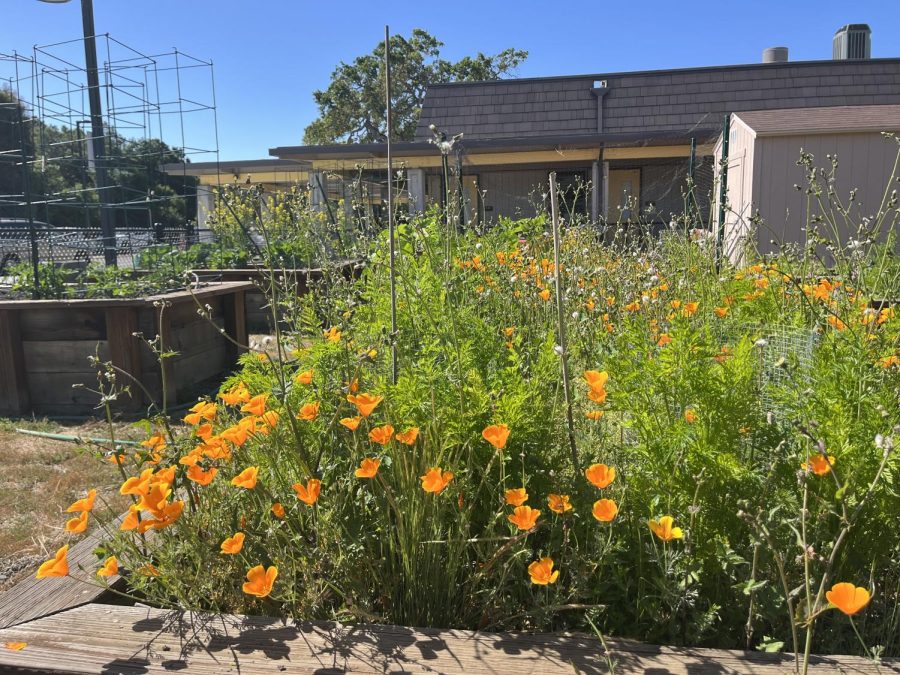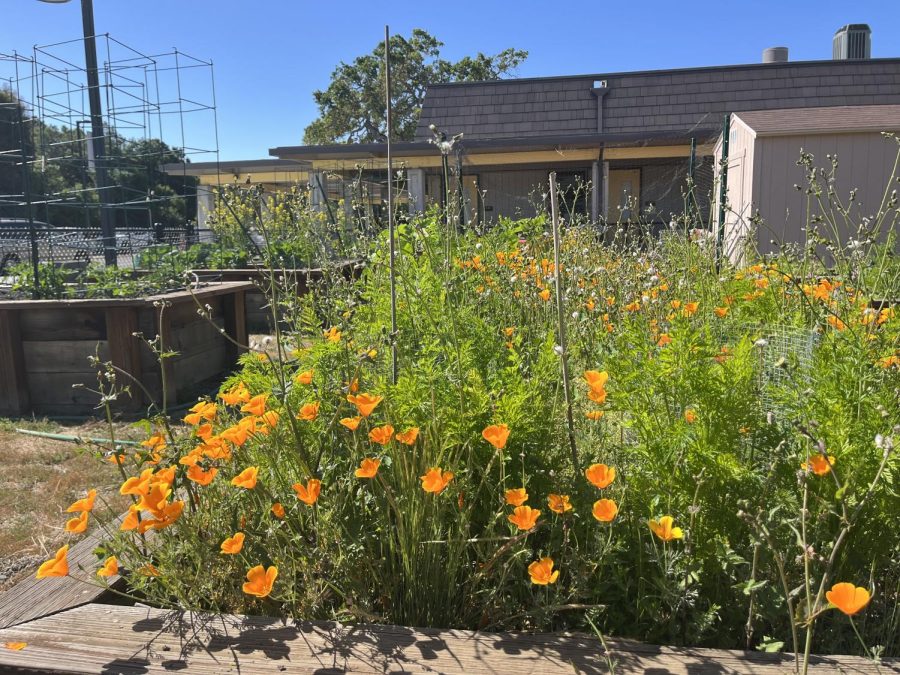Garden club digs deep to cultivate community, connections
Tucked between the K-buildings and Miranda Avenue is one of Gunn’s hidden gems: the garden. A meticulously nurtured display of all kinds of plants, from ripening tomatoes to vibrant poppies, the garden reflects the work of the Organic Garden Club, which meets every Tuesday at lunch and, on occasion, during the summer.
The Gunn garden was created over 25 years ago, but has undergone numerous modifications over the years, according to Organic Garden Club Co-Adviser Elizabeth Matchett. When the Miranda driveway was rebuilt about 15 years ago, the garden was moved to its present location, using a district-provided irrigation system to combat an ongoing drought and a lack of sprinklers. The garden also faced challenges when the
club shifted to online meetings during the pandemic. “During COVID, the garden was very much neglected,” Matchett said. “We still had the (Organic Garden Club) come meet online, and we told the kids they could go over to the garden when they had time, as long as they were by themselves or 6 feet apart from each other. When (in-person) school restarted, that was one of the first clubs that we restarted again because we could be outside.”
Organic Garden Club Vice President junior Fiona Li was one of the students who joined the club while it met online. She emphasized how Organic Garden Club welcomes all experience levels and aims to help students learn more about horticulture, whether it be through presentations or work in the garden. “The stereotype of a gardener (might be) an old lady or a buff dude, but you don’t have to be any of those — anyone can join,” Li said. “Even if you’ve never raised a plant in your life, that’s okay. It’s not all about raising plants. A lot of it is about doing work to make the garden look better.”
Li also noted how the club provides a place for her to enjoy the benefits of hard work. “My favorite part about the club is seeing everything we’ve planted right when it’s at its peak,” she said. “Seeing the tomatoes all at t
heir peak and tasting a tomato is always so good. The satisfaction you get from eating a tomato that you’ve planted is just different.”
To Matchett, this sense of fulfillment is what makes gardening valuable to students. “What I see as the main benefit of the garden, more than anything else, is it allows you to get in touch with the earth,” she said. “(You can) touch the flowers, touch the plants, see how they grow (and) learn about where food comes from. I think it’s an important form of education that doesn’t get covered in any other part of our curriculum.”
The garden benefits those outside of the club as well: Its plants are used in Gunn’s culinary arts classes to make risotto and garnishes for chicken dishes. Cindy Peters, culinary arts teacher and Organic Garden Club co-adviser, chooses to use organic garden-grown ingredients because they don’t contain pesticides. Furthermore, no vitamins are lost, as would be the case if the ingredients had been shipped to a ma
rket.
In the future, Peters would like to see both the garden and gardening enthusiast community expand. “I want to see the club size bigger, and I want to see kids that are really interested in gardening and really want to improve the garden,” she said. “They work hard and don’t care about getting their hands a little dirty.”
Your donation will support the student journalists of Henry M. Gunn High School. Your contribution will allow us to purchase equipment and cover our annual website hosting costs.

Senior Kaitlyn Chen is a lifestyle editor for The Oracle. Outside of school, she enjoys dancing, hiking and discovering new music artists.



